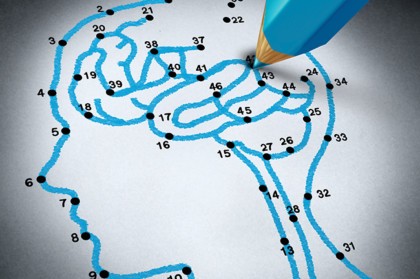
One Australian is diagnosed with dementia every six minutes. By 2050, about 900,000 of us are likely to be living with this progressive disease and experts say we’ll be facing a social, health and economic crisis if we’re unprepared for this imminent spike in the illness.
“It’s becoming more prevalent – especially early-onset dementia – and we need more research to tell us why,” Alzheimer’s Australia CEO Carol Bennett says.
However, there’s good news on the horizon, with medical researchers making major breakthroughs in the causes and treatment of this insidious disease.
New drug could bring relief
Most of the dementia drugs currently available don’t slow the long-term deterioration, and the drugs that are in development to slow deterioration don’t all provide as much symptomatic relief.
However, Melbourne researchers hope that will change with the trial of the drug Anavex 2-73, which could be a breakthrough in slowing the progress of dementia. It’s designed to “modify the course of the disease and give symptomatic treatment”, researchers say.
The trial’s leader, associate professor Steve Macfarlane, who’s also the director of Aged Psychiatry at Caulfield Hospital, recently told the Herald Sun that the drug is designed to protect the brain by helping nerve cells live longer, while assisting with the removal of amyloid plaque, which builds up in the brains of those with the disease.
The first patient has started treatment and the results should be known within a year. If it’s successful and approved, it could be on the market within three years.
For more information about the Anavex 2-73 trial (open to people in Victoria only), email adclinicaltrials@cgmc.org.au.
Dementia risk in everyday pills
A new study published in the online journal JAMA Internal Medicine has revealed that certain over-the-counter asthma medicines, sleeping pills and antihistamines are linked to a severely increased risk of dementia.
The study by the University of Washington shows that a daily dose for at least three years could increase the risk of developing Alzheimer’s disease by 60 per cent.
These “anticholinergic” drugs block the chemical acetylcholine, which helps transmit electrical impulses between nerve cells. People with Alzheimer’s disease lack acetylcholine and it’s feared these pills could exacerbate or trigger cognitive decline.
University of Melbourne associate professor Michael Woodward, who’s the chief medical adviser at Alzheimer’s Australia Victoria, says the findings of the University of Washington study have sparked a need for rigorous research into whether the link between prolonged use of the drugs and dementia is “causative”.
“These drugs are better avoided in older people for many reasons – they increase the risk of falls, accidents and acute confusion – and there’s an established link between anticholinergic drugs and dementia,” Woodward says, adding that elderly patients should always inform their GP when they start taking any type of conventional or alternative medicine. “People should be cautious about the side effects of any agent they put in their bodies,” he adds.
Long-term use of anticholinergic drugs is likely to be added to the list of other known lifestyle factors that can put you at risk of dementia, including poor diet, smoking, excessive alcohol consumption and not doing enough exercise.
What needs to happen next?
In a word, research. Progress has been made, with the Federal Government last year pledging $200 million towards dementia research. However, Woodward says that less than 1 per cent of the 340,000 Australians who are currently living with dementia are involved in scientific tests and trials that aim to discover how this group of diseases might best be prevented and treated.
Woodward says he hopes this number will increase five-fold in coming years in order to improve the lives of those 900,000 Australians projected to be living with dementia by 2050.
“Recruitment can be difficult because there’s a view that people with dementia have enough problems,” he says. “Their families don’t want to subject them to research, but it’s important that our studies continue to grow.”
“Dementia stole my husband”
Lyne Hansen, 57, cares for her husband Mark, 60, who has fronto temporal lobar degeneration
One of the symptoms of fronto temporal lobar degeneration (FTLD) for Mark is younger onset dementia, which affects about 25,000 Australians.
“It steals their personality and leaves an anxious man trying to navigate a strange world,” Lyne says. “I feel like I’m living with Mark’s twin brother – he looks, sounds and smells the same, but I don’t know him.”
Lyne convinced her husband to see a doctor when he couldn’t remember what common foods were. These days, he struggles to recognise the faces of his four children and 11 grandchildren, but he knows their voices.
Mark is a former logistics boss who ran an aid warehouse with agencies such as the UN and Doctors Without Borders, but Lyne says he’s now “two-dimensional”, robbed of emotion and the ability to see reason. He accepts he has dementia but he’ll never understand that anything is wrong.
“It’s a blessing for him,” Lyne says. “In ‘Mark world’ he’s happy because he encases himself in strong routines.“
FTLD sufferers fixate and become repetitive, so it can often be misdiagnosed as OCD. Lyne wants to educate Australians because people are baffled when a healthy-looking man behaves oddly: “Anyone in their 40s or 50s who develops obsessive behaviours should be assessed with a brain scan to look for FTLD.”
Source: bodyandSoul
 We are sharing information for knowledge. Presented by. SocialDiary.Net
We are sharing information for knowledge. Presented by. SocialDiary.Net



